Long-term forecasts about technology, climate, and society are already taking shape today.

The future always sounds wild until you realize it’s already slipping into the present when you aren’t paying attention. Big changes don’t usually kick down the door—they creep in quietly, disguised as upgrades, new trends, or cool tech. One day you’re laughing at sci-fi movies, and the next you’re using something they predicted without even thinking about it. That’s the strange thing about the times we’re living in right now.
Progress feels slow day-to-day, but step back for a second, and it’s obvious we’re racing toward a world that would blow our grandparents’ minds. A lot of what’s coming by 2075 won’t be shocking because we’ll have lived through the small shifts that made it feel normal. If you still think crazy future predictions are just fantasy, it might be time to look around a little closer. The future isn’t waiting for 2075 to arrive—it’s already moving in.
1. Most people will have digital clones that can work, talk, and think for them.
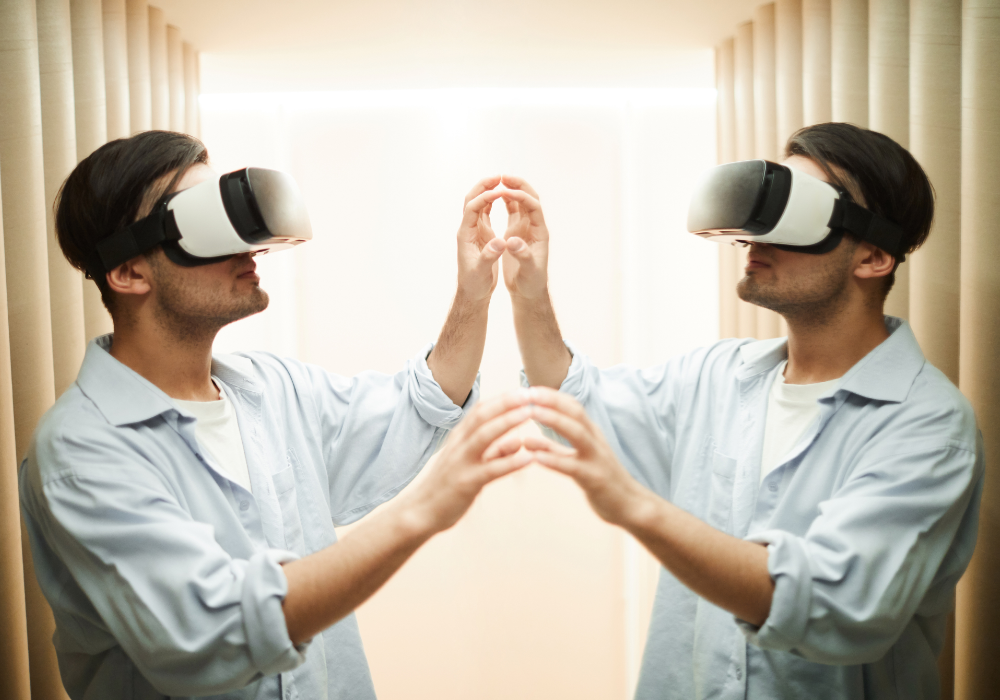
It sounds like pure sci-fi, but early versions of this are already happening. AI tools can mimic your voice, writing style, even your decision-making patterns. Right now, they’re limited to simple tasks—maybe answering emails or drafting basic documents—but fast forward a few decades, and your digital twin could negotiate deals, manage your calendar, or even hold meetings in your place. Imagine logging into a system where your clone already handled half your workday.
It’ll feel normal before you know it. Some companies are already experimenting with AI-powered avatars for customer service and virtual sales. These clones will keep learning and adapting based on your real-world behavior, getting smarter the more you use them. By 2075, the line between “you” and your digital self might be so blurry, people won’t know who’s actually showing up anymore. The idea isn’t as far off as it sounds—it’s already creeping into everyday life.
2. Human lifespans will stretch past 120—and aging will look totally different.

For decades, people have dreamed of living longer, but now scientists are seriously hacking the biology of aging. New research into things like cellular regeneration, gene editing, and anti-aging drugs isn’t just extending life—it’s making the aging process slower and healthier. Instead of 80 being the “old age” benchmark, it could become the new 50. Some researchers predict babies born today might routinely live to 120 or beyond, report experts at The World Economic Forum. The real kicker? This isn’t wishful thinking anymore.
Clinical trials are already underway for drugs that could dramatically slow down the aging of cells. Technologies like CRISPR are rewriting what’s possible when it comes to genetic repair. You won’t just live longer—you’ll stay stronger, healthier, and sharper for much more of your life. Instead of retiring in your 60s, you might just be hitting your prime. It sounds insane until you realize science is already setting the wheels in motion—and they’re spinning fast.
3. Climate refugees will reshape cities and entire countries.

Most people think of climate change as rising temperatures and bigger storms, but there’s another massive shift already happening—people are starting to move. Rising sea levels, droughts, and extreme weather are pushing millions to leave their homes, and it’s only going to grow. Cities that once felt secure are already facing an influx of new residents, while others are slowly emptying out.
Climate migration is happening within countries and across borders. In 50 years, entire regions might become unlivable, while new mega-cities pop up in areas that are currently considered off the radar. Infrastructure, housing, politics—everything will have to adjust. It won’t be some slow, gentle shift either.
Some places are already feeling the pressure now. If you think this will only affect faraway countries, think again. Every major nation, including the U.S., is going to have to rethink borders, city planning, and survival strategies. The future is already starting to move—and fast.
4. Owning a personal car will seem as outdated as owning a horse.

Right now, driving your own car feels like a basic part of life. But with self-driving technology advancing, rideshare platforms exploding, and cities redesigning themselves for fewer cars, the idea of owning a personal vehicle is already losing ground. By 2075, it might seem almost ridiculous to have a car just sitting around doing nothing most of the time.
Instead, on-demand autonomous vehicles will likely zip you wherever you need to go—cheap, fast, and without the headache of parking or maintenance. Insurance companies, urban developers, and even energy companies are already bracing for this shift.
Some younger generations are already delaying or skipping getting driver’s licenses altogether. Cars will still exist, but personal ownership will probably be rare, expensive, and maybe even considered selfish in crowded cities. You won’t need a garage—you’ll just call a ride the same way you order food now. The seeds of that world are already planted.
5. AI therapists will handle mental health care for millions of people.
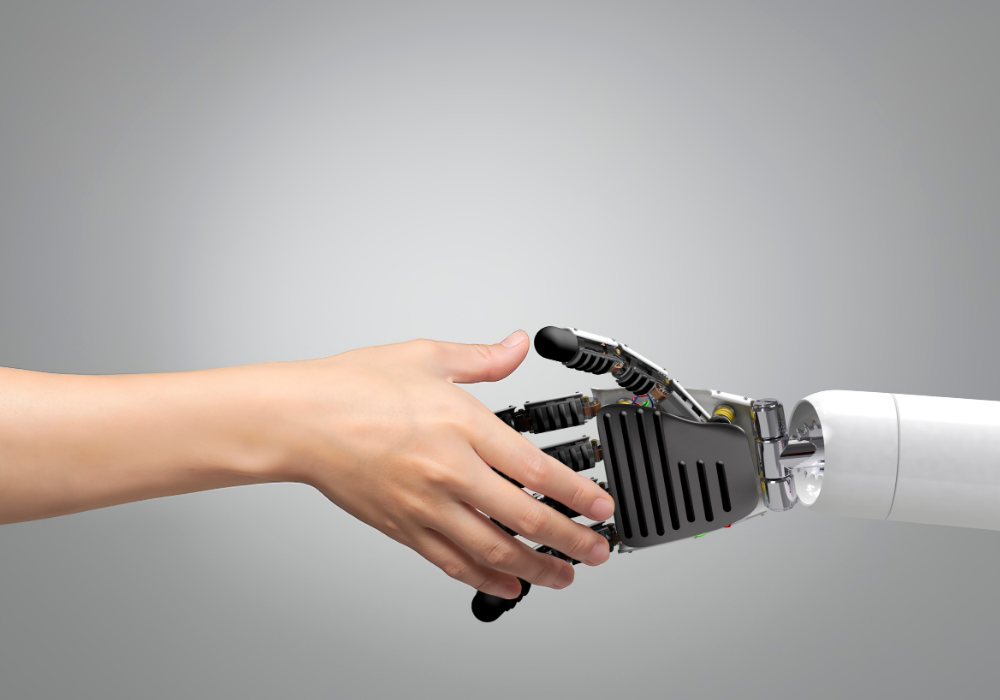
At first, it sounds crazy to trust a machine with your deepest fears, but AI mental health support is already gaining real traction. Apps that offer therapy chats, mood tracking, and coping strategies are popping up everywhere—and people are using them. They’re fast, private, judgment-free, and available 24/7, which is more than many human therapists can offer.
As AI gets smarter and more intuitive, it’s only a matter of time before millions of people rely on digital therapists for day-to-day emotional support. Sure, humans will still be needed for complex cases and deep trauma work, but for everyday stress, anxiety, and loneliness? AI is already stepping in. By 2075, talking to a machine about your feelings could be as normal as ordering coffee from an app. It sounds unsettling until you realize it’s already happening quietly behind the scenes—and for a lot of people, it’s genuinely helping.
6. 3D-printed homes will solve housing crises—and change how neighborhoods look.

Imagine ordering your next house like you’d order furniture online. Thanks to advances in 3D-printing technology, that’s becoming less futuristic and more reality every year. Entire homes are now being printed in a matter of days using giant printers and specialized concrete. These homes are cheaper, faster to build, and more sustainable than traditional construction.
In some places, communities of 3D-printed houses are already popping up, offering real solutions to housing shortages and homelessness. By 2075, it could be weird to see a neighborhood built the “old-fashioned way” with months of construction noise and sky-high labor costs.
Future neighborhoods might be assembled in weeks, customized by computer, and designed to withstand natural disasters better than anything we’ve ever built before. What sounds futuristic now is already standing in Texas, Mexico, and other parts of the world. The printing press changed books forever. 3D printers are about to do the same thing for homes.
7. Augmented reality will replace smartphones and blur real life with the digital world.
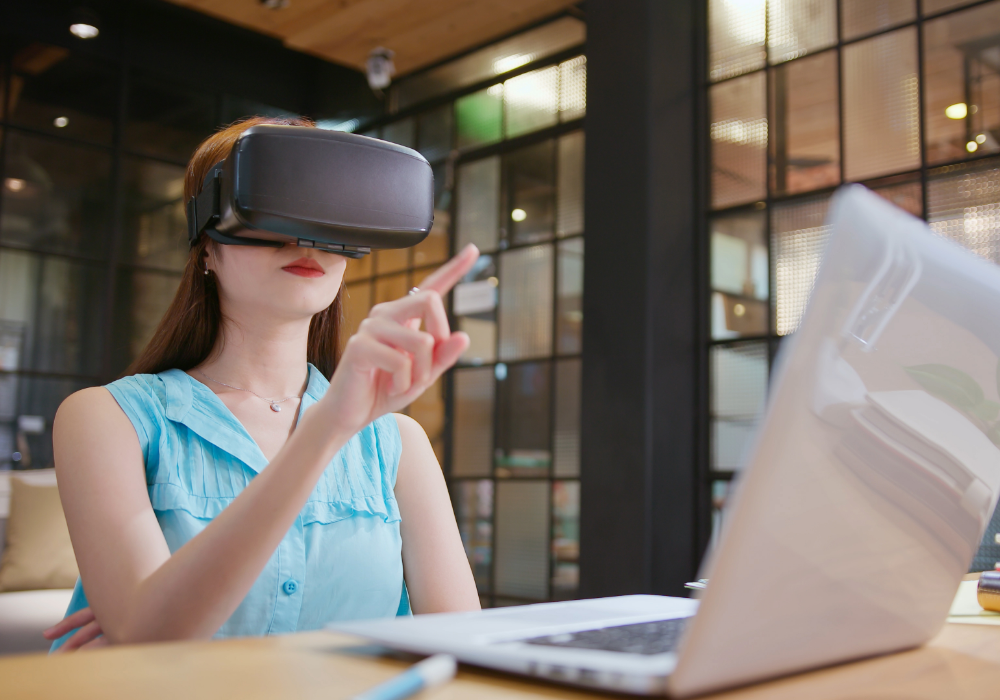
Pulling a phone out of your pocket to check the time or send a text already feels normal, but that might be short-lived. Tech giants are racing to create augmented reality (AR) glasses that project everything you need—texts, navigation, social media—right into your field of vision. No more looking down at screens. Your whole world will become a screen. Early versions are already here with prototypes and limited releases, but by 2075, it’ll likely be the standard.
AR could layer information over everything: ads floating in your vision, real-time translations during conversations, restaurant reviews popping up while you walk past a café. It sounds overwhelming, but it’s exactly the direction technology is heading. Instead of holding devices, you’ll wear the digital world like a second skin. Crazy? Maybe. But when you realize companies are pouring billions into making it happen, it starts to feel less like sci-fi and more like tomorrow’s reality.
8. Personalized medicine will use your DNA to design treatments just for you.
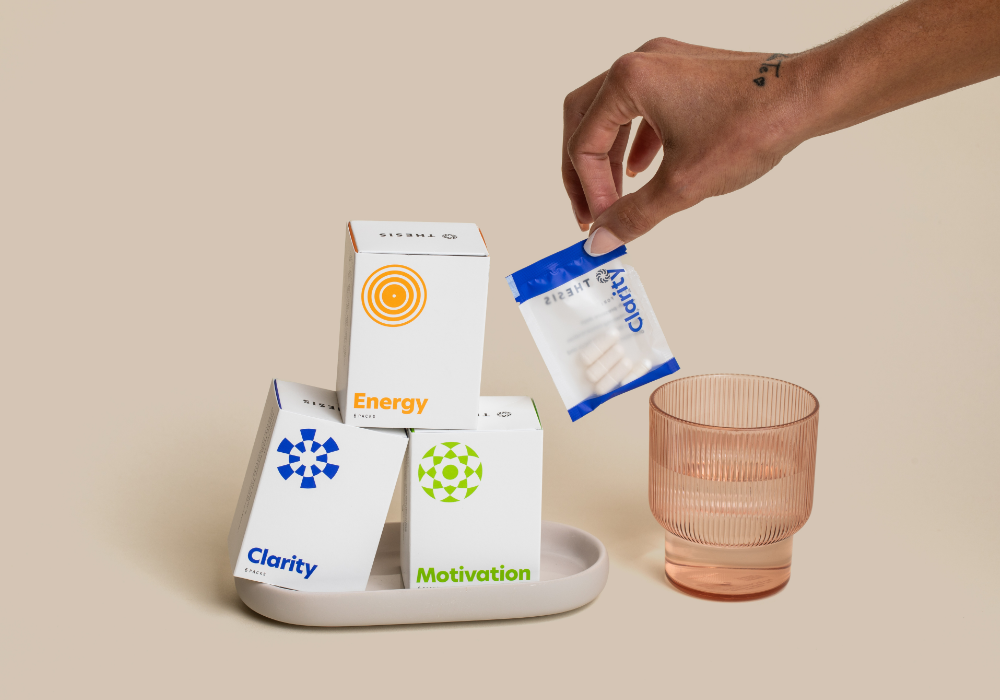
Right now, medical treatments are mostly a one-size-fits-all deal. But breakthroughs in genetic research are setting the stage for a complete revolution in health care. Instead of prescribing the same pill to a million people, doctors will soon be able to tailor treatments to your exact DNA, lifestyle, and health history. It’s already beginning with things like cancer therapies, where genetic profiling determines the best approach. Fast-forward to 2075, and it might seem crazy that we ever treated diseases based on guesswork rather than genetic blueprints.
Your medications, your diet, even your fitness plans could all be customized at a molecular level. Personalized medicine promises longer, healthier lives—and a total rewrite of how we think about health care. It feels futuristic now, but the early trials and technologies are already happening quietly. Soon, medicine won’t just be about treating illness. It’ll be about engineering better health from the ground up.
9. Space tourism will be as common as international vacations are today.

Booking a trip to another country used to seem like a luxury. By 2075, booking a trip to space could feel just as normal. Companies like SpaceX, Blue Origin, and Virgin Galactic are already offering rides to the edge of space—for the insanely rich, of course. But give it a few decades, and costs will drop, technology will improve, and everyday people might finally get to float in zero gravity for a long weekend getaway. Imagine hotels orbiting Earth, lunar sightseeing trips, and honeymoons with a view of the stars.
The foundations for this crazy-sounding future are already being laid with test flights and early tourism programs. It won’t stay exclusive forever. What seems like an impossible fantasy now will eventually be sold in travel brochures. Once space becomes a destination, not just a dream, the world—and the way we define adventure—will never feel quite the same again.
10. Universal basic income will become a serious solution to automation-driven unemployment.

As AI and robots keep getting better, a huge question looms: what happens when there just aren’t enough jobs left for humans? Universal basic income (UBI)—the idea of giving everyone a regular check just to exist—isn’t as far-fetched as it sounds. Cities and countries are already running pilot programs to see how it could work. Automation is already squeezing out jobs in retail, transportation, manufacturing, and even tech. If society doesn’t figure out a way to support displaced workers, the economic fallout could be brutal.
UBI could shift from a radical idea to a basic necessity by 2075. No work? You still get paid enough to live. It won’t solve everything, but it could keep society from crumbling under the weight of mass unemployment. If you think you’ll never see UBI in your lifetime, just remember: a few decades ago, people thought the idea of paying people to stay home during a crisis was crazy too.
11. Mind-controlled technology will make using keyboards, mouses, and touchscreens feel ancient.
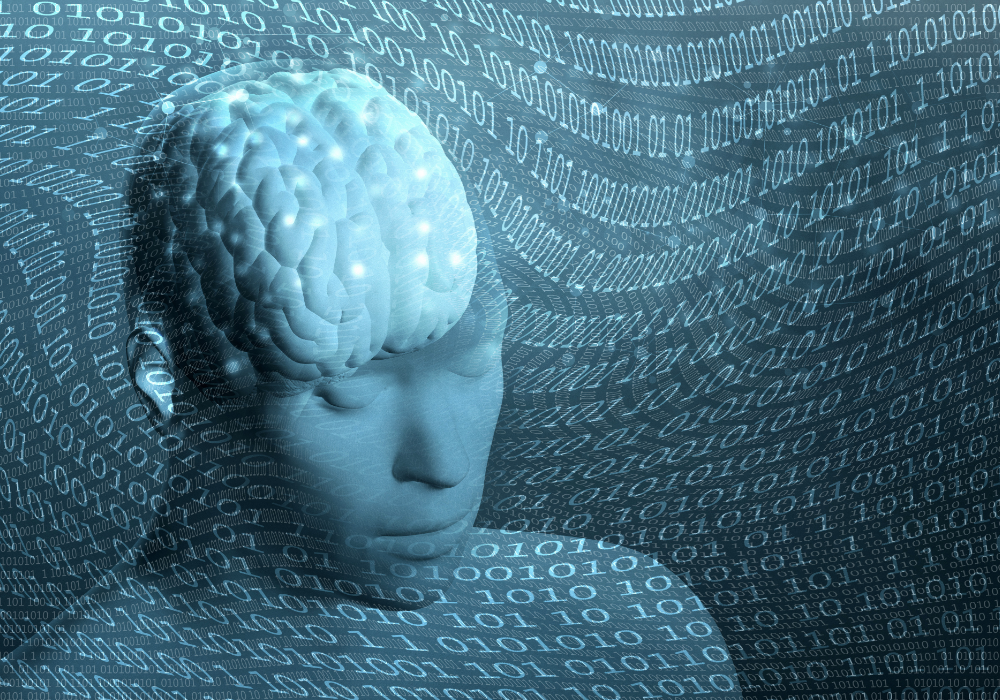
The idea of controlling devices with your mind sounds like pure science fiction, but the early tech is already here. Brain-computer interfaces (BCIs) are being developed that let people type, move cursors, and even play games just by thinking. Right now, it’s mostly experimental, but the technology is advancing faster than anyone predicted. By 2075, clunky keyboards and even touchscreens could feel ridiculously outdated. Instead of tapping or clicking, you’ll think a command—and your device will respond instantly.
No buttons, no screens—just pure, direct interaction. Companies like Neuralink are already pushing toward this future, despite the ethical and technical hurdles. It’ll change everything about how we work, communicate, and even play. It sounds impossible, but the seeds of mind-tech are already sprouting. In a few decades, you might laugh that you once had to physically poke your phone to get it to listen.
